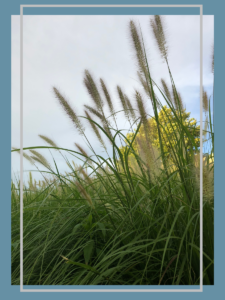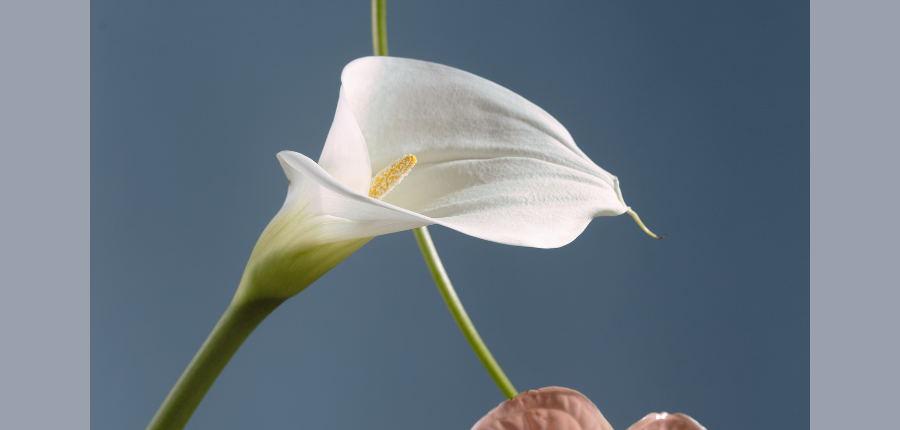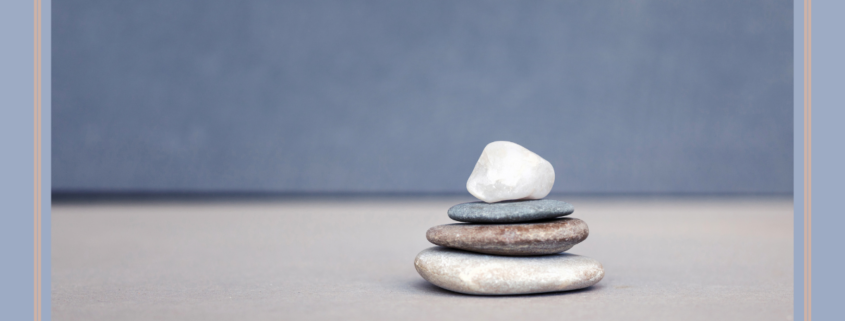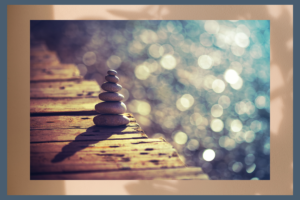Mindfulness is a common English word that means paying attention. When we talk about being mindful, it is paying full attention to the present moment with an open and curious attitude. It is being aware of where we are and what we are doing without judging it.
“The present moment is filled with joy and happiness. If you are attentive, you will see it.”
– Thich Nhat Hahn
While this can be easier said than done, mindfulness is a quality that every person possesses. You only have to practice to know how to access it. We all have done so in the past. When we recall treasured memories, there is usually an aspect of mindfulness there.
Let’s do a little exercise. Think of a favorite moment – it could be recent like from the holidays or a favorite place or vacation from years ago. You were most likely with people you loved or doing one of your favorite things or in a favorite location. Go there for a moment – close your eyes and remember. You were all most likely fully absorbed in the moment. You weren’t planning to be somewhere else or wanting to move on quickly to the next task at hand. You were there in the now, savoring what was happening. You were mindful.
The good news is, we can cultivate this same state no matter what is going on by simply using a few tools. Like any skill, this takes practice. Also like all skills, as you practice, it becomes easier and easier.
The key is that our thoughts are constantly changing, everything is constantly changing and we have the capacity to be present with it all. Good feelings arise, bad feelings arise, but then they go again. It’s ever changing, so when we get wrapped up in something, mindfulness helps us to recall that this too shall pass. This helps us to unwind from discomfort and by doing so experience more inner peace. On the other hand, when things are good we can use mindfulness to fully savor that experience as well.
There are two aspects of mindfulness. Formal and informal practice. Formal practice is what we know as meditation. There are hundreds of kinds of meditation. Mindfulness Meditation stems from a Buddhist practice called Vippasana, which comes from the Theravada school of Buddhism. Theravada is the oldest form of Buddhism, preserving a version of the original Buddha’s teachings. It’s important to recognize and honor the tradition from which these teachings come. Mindfulness, however, is not Buddhism. It’s been adapted to western culture in a way that is non- religious. Practicing mindfulness does not make you Buddhist, nor does it interfere with any religious beliefs or practices you may have.
Mindfulness Meditation was brought to America in the 1970’s by a few pioneers who went to Asia and studied as monks. They took what they learned and adapted it for Western culture. It is also sometimes called Insight Meditation. From a small movement at the time, it’s grown exponentially to a worldwide phenomenon over the past 50 years.
The second aspect of mindfulness is informal practice. Informal practice is mindfulness in our daily activities. This really is where the magic happens, in my opinion. I meditated for YEARS and still found myself stressed out and reactive, especially at work. Meditating was definitely helpful to my stress level, but it was my daily reactivity to stressful situations that I wanted to work on. I didn’t know how, until these tools were taught to me. We all have stressors in our day to day. Work, family, time pressures, health, a recent global pandemic, political instability, wars. It is not an easy time in the world right now.

There are ways to apply mindfulness to things that bring stress and really see a benefit in how we react. Mindfulness changes our reactions to responses. Reactions tend to be automatic patterns of behavior that we have learned over time. A response is a thoughtful, non reactive reply that can come from a place of calm. We don’t have to change who we are or what’s important to us. We can simply learn to check in with ourselves and respond from a calm and centered place.
The key is we need to practice these tools when we aren’t triggered so that when we are triggered we have access to the tools.
Why mindfulness? There are thousands of studies on mindfulness and more being published all the time.
The benefits are numerous – stress reduction, performance enhancement, improved focus, more emotional regulation, and an increase in feelings of wellbeing.
When long time meditators are studied, their brain function is recorded as that of a much younger person. Meditation has shown to lengthen the telomeres in brain cells, which are linked to aging. So it legit is an anti-aging tool. It’s also simply a break in the day for us to suspend judgement and simply enjoy being. When we meditate, we begin to understand how our mind works. It is a tool for befriending one’s own mind.
“Mindfulness isn’t difficult. We just need to remember to do it.” -Sharon Salzberg
Meditation came into my life when I was a teenager. My mom went on a weekend meditation retreat. When she returned, my family could all see a difference. She was more relaxed, less reactive to daily stresses. It got to the point where if she would snap, my sisters and I (all teenagers at the time, infusing the sass here) would all tell her she really needed to go meditate. She decided to go back to do the retreat again. I raised my hand and asked if I could go along. I’d seen such positive changes in her that it seemed like something worth exploring. I am tru
ly grateful for this experience and grateful to you for reading today!
So this is what meditation is. Here are some of the myths and things that meditation is not.
#1 Myth – Perhaps the most common misperception about meditation is that the goal is to have no thoughts. This is completely not true. The mind’s job is to think, just as the heart’s job is to beat. We pay atte
ntion to our thoughts and let them go. It’s the letting them go that is the critical part. Not to get stuck in a loop – although you will get stuck in a loop. I still do. I simply catch myself and go back to the breath. Noticing
and coming back is the essence of practice. Noticing and coming back is the essence of practice.
#2 Myth – Meditation is always peaceful
When we quiet our minds. Crappy things will eventually come up. It will be uncomfortable. It’s human nature to not want to deal with this – to avoid it, push the uncomfortable feelings away. As we make mental space thru meditation, our mind is going to eventually go to things that are unpleasant. Why did I snap at my partner like that, why did I let that coworker get to me? It can even go deeper and bring up unresolved issues from years ago. I have had difficult moments from years past pop up out of nowhere in meditation.
When this happens, we need to BE KIND TO OURSELVES. In all of this, self compassion is key. If something comes up that is traumatic and you can’t tolerate it, it is absolutely appropriate to come out of the meditation. If it’s not intolerable, the invitation is to sit with these uncomfortable feelings, because the point is that they will come and they will go. The idea is to not get wrapped up in these uncomfortable thoughts, but to accept them, allow them, and let them go. This is how meditation can help process. Truly it is in these moments that great insight can happen. So again, we are not NOT thinking as we meditate.

Myth #3 – Mindfulness will make me happy all the time. Mindfulness isn’t a cure all for the unpleasantness in life. It will change our relationship to the unpleasantness and perhaps make it less unpleasant. Even my teachers – who have both been teaching for 40 years – talk about how they still get stressed. They know how to react skillfully to stress, so they react less and get over it quicker. I have definitely seen this change in myself over the years. I am far less reactive to things. Practicing mindfulness won’t make your kid behave impeccably, remove all traffic jams, or shorten the insufferable line at the grocery store.
Myth #4 – Meditation is all in your head
We have mindfulness of thought, which is more of a head centered meditation, but we also have mindfulness of the body, where we focus on bodily sensation and less on thoughts. The body is, in fact, a very important part of how we process thoughts and feelings. So it is not purely the mind we are concerned with, but also the body and emotions as well.
Myth #5 – Meditation is just a relaxation technique.
True, meditation will relax you. You can decide that relaxation is all you need from these practices. As noted before, meditation is a tool of self awareness, which can bring greater inner peace as we learn to work with our own triggers and stressors. Befriending ourselves, and being clear on who we are and where we want to go is also a huge benefit of meditation.
Myth #5 – Meditation can replace my therapist.
While meditation can do great things for our emotional state, meditation definitely can be healing. However, it is not a replacement for therapy. It is not a replacement for medication. It can do wonders when combined with these other modalities for healing.
Meditation is also not instant enlightenment. Lofty thoughts are not to be striven for, nor are they to be avoided. They can absolutely be a pleasant side note in meditation. There is the idea of achieving nirvana in Buddhism. That is not what we are after, nor is it an expectation in this kind of meditation. Vippasana meditation – which mindfulness comes out of – is watching your life unfold moment by moment. Whatever comes up, comes up.
This is a no judgement zone. This is a self compassion zone. The two wings of mindfulness are Mindfulness and Self Compassion. They are equally important. We experience all things with gentleness, we don’t beat ourselves up for not being perfect. We accept that we are human, therefore imperfect and we move on. When kindness is present, judgement and harshness will naturally recede. This is why the wing of compassion is so important.
How do we make this a habit?
For formal practice: Determine a space where you go to meditate that preferably doesn’t need setting up or cleaning off. Pick a time and a place where you can be undisturbed. Personally, my key is waking up earlier and doing it first thing. Maybe for others it’s better as you end your day, maybe it’s after work to decompress before you begin your personal time. The best time to meditate is the time that works for you. One suggestion is to use reminders. Put a sticky note somewhere, or set an alarm on your phone.
So what is the posture? Meditation can be done seated, there are walking meditations, we can stand or lie down – although lying down can lead to sleep. (That can be great for helping to fall asleep) If you choose to meditate lying down, the recommendation is to keep your knees bent and feet flat – this way if you fall asleep your knees will most likely fall and wake you. When we sit, we should be in a posture that allows us to be both relaxed and alert. One idea is holding our posture like a king or a queen on a throne – relaxed and alert.
How long to meditate? It is not necessary to sit for very long periods. 5 or 10 minutes a day can be enough if you find yourself time pressured. I set a goal for 20 minutes a day, but if I only have 10 minutes I don’t worry about it. As a side note, recent research shows that 12 minutes a day, 5 times a week will have a positive impact on strengthening and retaining your ability to pay attention. What matters most is consistency. Goalsetting for a daily 5 minute practice is better than once a week for an hour that you never actually find time for. It’s about creating a habit that works for you.
Looking for guided meditations? Check out my YouTube channel with plenty of free ones of different lengths and topics.
https://www.youtube.com/@BeSimplyMindful
How to start informal practice:
This first invitation is learning to use a pause. There is space between actions and RE-actions. If we can get into this space, breathe, and pause before reacting, we can respond more wisely to situations. If we don’t practice when we are non-reactive, though, we won’t have the ability when we ARE reactive. Pausing needs to become a habit. Suggestions include before every meeting begins, or before you pick up your phone, before sitting down to a meal, when you enter a certain room. Maybe it’s every time you open your email. Whenever that thing happens, just stop. Pause. Breathe in, breathe out. Notice where you are and how you feel in this moment. Sticky notes can be excellent as a reminder here. See my expanded blog post on pausing for more details. Good luck!
I truly am here to share these potentially life changing techniques and to be of service to anyone who is interested in mindfulness. I welcome your feedback, questions and comments.
Mindfully,
Cynthia













